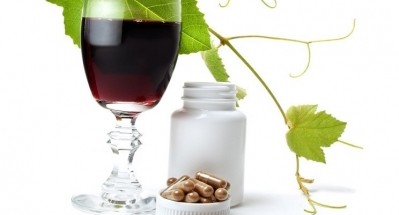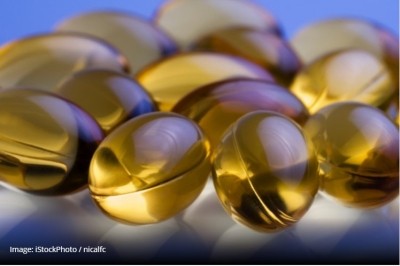Resveratrol may contribute to brain ageing reversal by as much as ten years: Study

The Australian team also concludes that resveratrol consumption amongst postmenopausal women can also contribute to enhanced cognitive and cerebrovascular functions.
“Our observed improvement in overall cognitive performance with resveratrol could potentially reverse cognitive ageing by up to 10 years” says Dr Rachel Wong, a dementia research fellow with the National Health and Medical Research Council and the Australian Research Council (NHMRC-ARC).
“We observed an improvement in overall cognitive performance which appeared to be due to improvements in processing speed and cognitive flexibility, which are critical to supporting executive function in the aging population.”
Since 1990, the number of people globally living with dementia has more than doubled. In 2016, dementia mortality rates in women were almost twice that of men.
This may be partly attributable to the abrupt decline of oestrogen at menopause and the associated loss of its protective effects on cardiovascular and neural functions.
Resveratrol, found in grapes, berries and nuts, has been shown to improve endothelial vasodilator function in humans and improvements to verbal memory in older adults after six months of 200 mg of supplementation per day compared to placebo.
Further research points to doses of 250 milligrams (mg) and 500mg of resveratrol as contributing to increases of resting cerebral blood flow (CBF) in younger adults, although cognitive function was not affected.
Another study found that 75mg resveratrol, the lowest dose tested, was the most efficacious dose to acutely elicit global cerebral vasodilatation and improve performance of a sustained attention task in type 2 diabetes patients.
Study details
Along with colleagues from the University of South Australia, Dr Wong began randomising 129 volunteers to consume either two capsules containing 75mg of Evolva’s Veri-te resveratrol ingredient daily or a matching placebo supplement for 12 months, followed by the alternate treatment for a further 12 months.
Results of the RESHAW (Resveratrol Supporting Healthy Aging in Women) clinical study found that compared to placebo, resveratrol improved overall cognitive performance, whilst weakening the decline in cerebrovascular responsiveness (CVR) to cognitive stimuli. The latter effect was associated with reduction of fasting blood glucose.
“The evidence in this first report confirms our previous observations in both men and women that a regular low dose of resveratrol can sustain cerebrovascular function, which has helped to preserve cognitive function, particularly in the more elderly women,” says Peter Howe, emeritus professor at the University of Newcastle’s Clinical Nutrition Research Centre.
“Most importantly, it shows that these benefits are not short-lived but can be sustained with ongoing supplementation for at least 12 months.”
The team, which also includes Dr Jay Jay Thaung Zaw, also from Australia’s University of Newcastle, think the results may be partly overseen by improvements to endothelium-dependent vasodilator function, which modulates CBF during times of demand.
‘Decreased nutrient delivery’
“We found improved resting blood flow velocities (BFV), stiffness in the cerebral vessels or pulsatility index (PI) and weakening of decline in neurovascular coupling following resveratrol supplementation,” the paper discusses.
“Allowing for normal ageing processes, cognitive decline and ultimately, dementia are linked to accelerated decline in resting CBF and CVR due to a decreased delivery of oxygen and nutrients in vulnerable brain regions such as the hippocampus.
“Cerebral artery stiffness, marked by increased PI, is also associated with cognitive impairment and predicts the progression from mild cognitive impairment to dementia.”
The study concludes that taking this evidence into account, the team think the improvements in resting BFV and PI with resveratrol highlights the ability of regular resveratrol supplementation to sustain cerebrovascular function, which may, in turn, preserve cognitive function in elderly women.
“This publication from the team at the University of Newcastle highlights the benefits that Veri-te resveratrol can have on brain health, making resveratrol an essential ingredient for postmenopausal women and healthy aging,”
“This first peer-reviewed publication from the RESHAW clinical study provides the evidence that supplementation with Veri-te resveratrol should be a key strategy for the design and delivery of effective supplements that may attenuate the decline in brain health as women age and improve overall wellbeing post-menopause,” says Clare Panchoo, VP, Health Ingredients, Evolva.
Source: Nutrients
Published online ahead of print: doi.org/10.3390/nu12030828
“Sustained Cerebrovascular and Cognitive Benefits of Resveratrol in Postmenopausal Women.”
Authors: Jay Jay Thaung Zaw et al.















